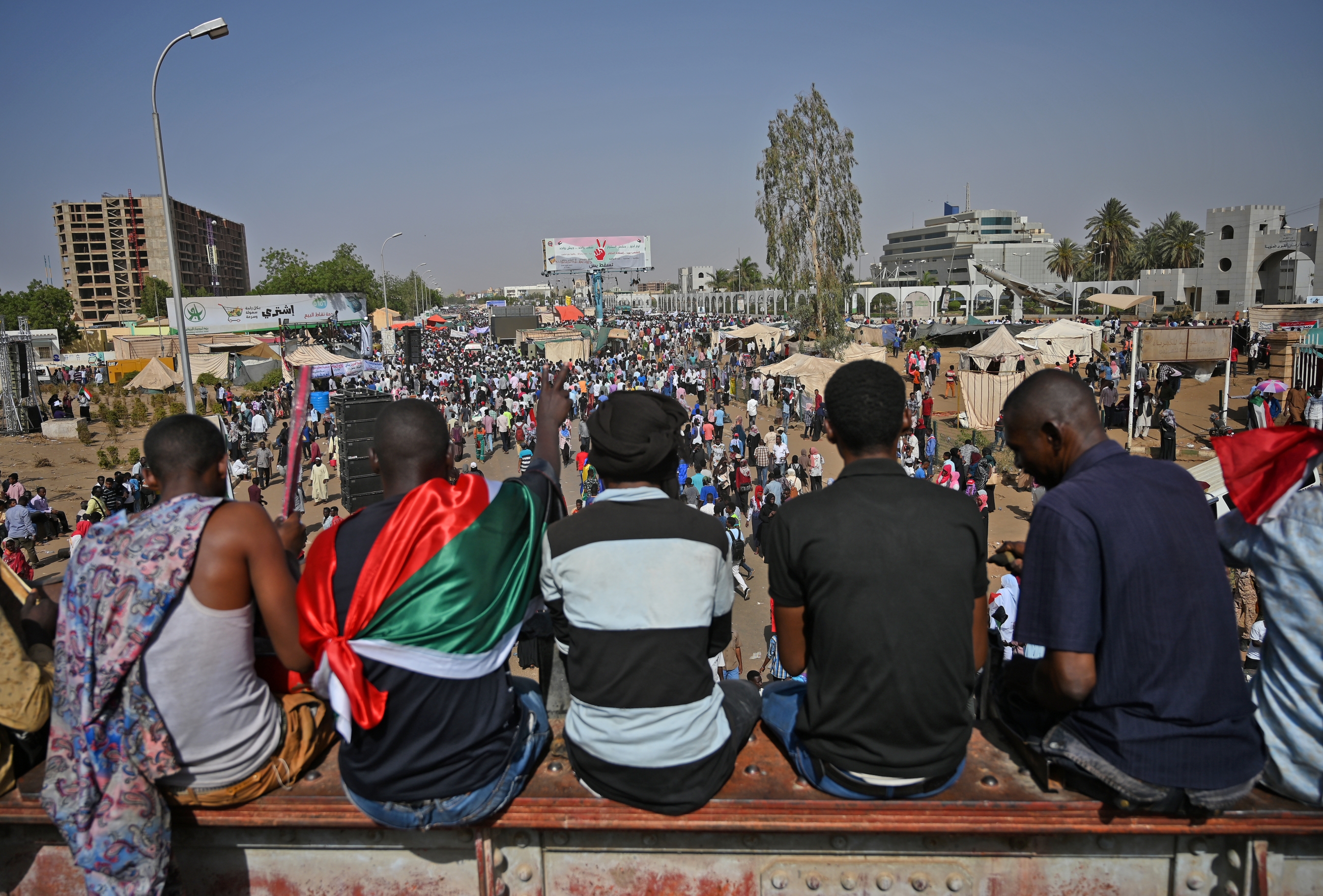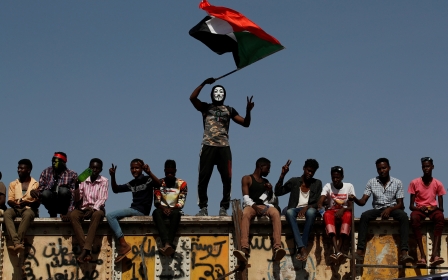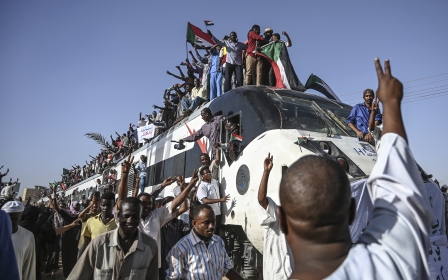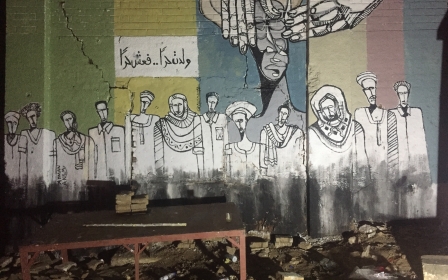Sudan's 'million march' rallies to demand military exit

Calls for a million Sudanese protesters to gather outside the country's military headquarters and demand the armed forces hand power over to civilians have galvanised a huge crowd on Thursday.
Convoys of protesters came from around the country through the week, including from the especially significant city of Atbara, where the current protest movement was ignited, and hundreds of thousands were estimated to have gathered by the Reuters news agency.
“We come to support the revolution, to support our sons," Ahmed Adawi, 67, from Kosti, south of Khartoum, told MEE. "I’m an old man but want to support our youth, who made all these sacrifices, until the revolution succeeds."
President Omar al-Bashir was ousted earlier in April after four months of protest against his 30-year rule and now protesters are directing their anger against the Transitional Military Council that replaced him.
After ousting Bashir the military council said it would be taking power for a two-year transitional period before handing over to a civilian authority but on Thursday said announced it would retain "sovereign authority only", while civilians would hold the post of prime minister and head all government ministries.
"The Transitional Military Council has the sovereign authority only, while the head of the cabinet, the civilian government and all the executive authority will be completely civilian," TMC spokesman Shams El Din Kabbashi told al Arabiya television.
Around 100 Sudanese judges from the Supreme Court marched to the site of a sit-in outside the military headquarters, which has lasted almost three weeks, to join the protesters on Thursday. It was considered the first by judges since Bashir took power in 1989.
"We demand reform of the judiciary until justice prevails and corruption is prosecuted," appeals judge Abu al-Fattah Mohamed Othman told Reuters.
I’m an old man but want to support our youth, who made all these sacrifices
- Ahmed Adawi, 67
"We demand the removal of symbols of the former regime from the judiciary and the dismissal of the head of the judiciary to achieve justice."
The Sudanese Professionals' Association, which spearheaded the anti-Bashir protests, called for a million-strong march to take place on Thursday.
On Wednesday evening, the opposition and the TMC agreed to form a committee to resolve their differences.
Three TMC members resigned, the TMC said late on Wednesday, but their resignations are yet to be accepted. The members were Lieutenant-General Omar Zain al-Abideen, head of the political committee, Lieutenant-General Jalal al-Deen al-Sheikh and Lieutenant-General Al-Tayeb Babakr Ali Fadeel.
One of the SPA's demands was that the three lieutenant-generals be dismissed and tried over their alleged role in a crackdown that killed dozens of protesters.
The SPA has insisted a civilian ruling council with representation for the military should take over.
Amani Mahmoud, a protester who travelled from Port Sudan northeast of Khartoum, celebrated the removal of Bashir and the military council's first leader Awad ibn Auf, who lasted only a day.
"We are able this time to bring down the third one, [Abdelfattah] Alburhan, as well. So we have warned the new rulers: hand over power to civilians before they are ousted," said Mahmoud.
Dozens of protesters gathered outside Egypt's embassy in Khartoum to demand President Abdel Fattah al-Sisi not interfere in Sudan, footage aired by Al Jazeera Mubasher showed.
"Tell Sisi this is Sudan, your borders are just (until) Aswan," they chanted.
At a Cairo meeting led by Sisi on Tuesday, African leaders agreed to give the TMC three months to implement democratic reforms, extending a 15-day deadline set by the African Union last week. Sisi holds the rotating African Union presidency.
A train packed with protesters, including hundreds standing on its roof and hanging from the side, arrived in Khartoum after leaving Atbara and picking up protesters throughout the country.
The current protests started in Atbara on 19 December 2018 when protesters torched the ruling party headquarters in protest over austerity measures imposed by Bashir's government.
"Protesters from all over the country have joined us today. The revolution is now gaining momentum and taking inspiration from the support and solidarity of people from outside Khartoum," doctor Imad Hassan, 35, told MEE.
Middle East Eye delivers independent and unrivalled coverage and analysis of the Middle East, North Africa and beyond. To learn more about republishing this content and the associated fees, please fill out this form. More about MEE can be found here.




